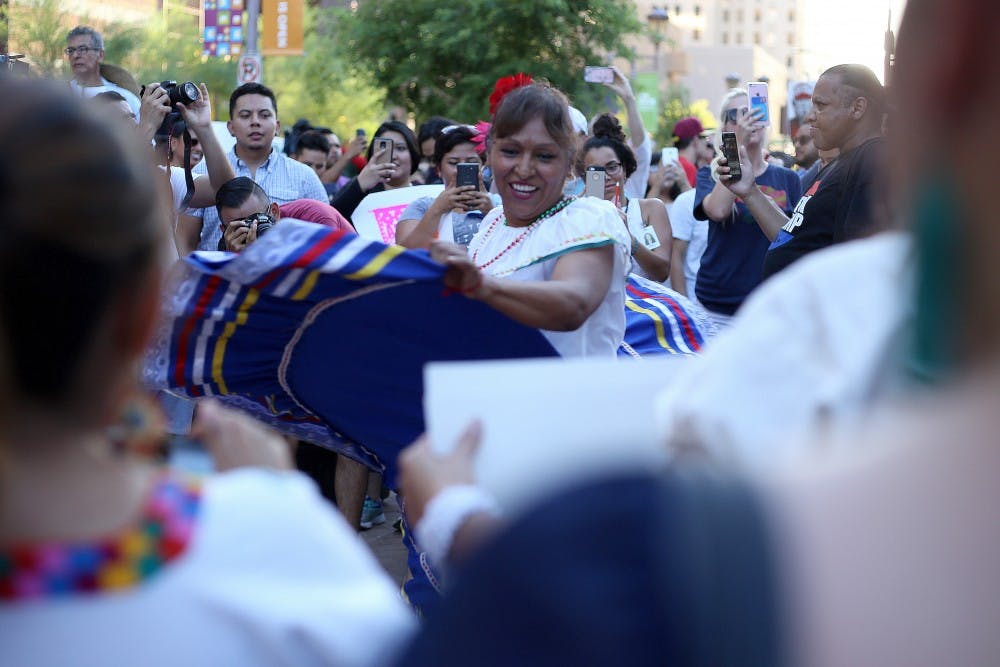"Not everything about culture is beautiful," said Carlos J. Ovando, Ph.D, Emeritus professor in the School of Transborder Studies in ASU.
In society, the notion and understanding of culture is often limited to dance, language, food and music, but in reality, culture is a very broad concept with many fascinating elements to explore.
The decisions we make every day are influenced by our ability to adapt to a given environment. These are based on personal values that are a result of either our collective or individual identity, or, our culture.
"Culture is not DNA," Ovando said.
He believes that through an active and critical mindset, one can put into context different factors that we learn over time. These factors then influence a given society or individual. Ovando has focused his research and teaching on helping minority and ethically diverse students achieve academically.
Therefore, we are not entitled to live in a certain manner or to associate with a specific identity. No culture whether collective or individual has been, is, or will ever be pristine.
One then understands the conflict and even hypocrisy behind the common belief and expectation of certainty related to identity. Influenced by our surroundings, we develop our constant evolving notion of sense — distinguishing the ideal from reality, the explicit from the implicit as well as what universal and particular to a person.
Unfortunately cultural identity, brings people together just as much as it can separate these groups. Yovani Flores thinks culture awareness is more prominent among certain groups, specifically those who have a better understanding of diaspora. Of Puerto Rican descendent, Flores arrived to Phoenix 27 years ago. "There's this idea that Mexicans and Chicanos don't identify with us (Puerto Ricans, Afro-Carribean, and/or Afro-Latinos) but we do." She continued to say, "Their struggle is our struggle."
Moved by her own personal experience of exploring her identity among a new community, Flores decided to create a sisterhood-based group called Mujeres del Sol. This group gives women of different colors, race and ethnicity the opportunity to develop a sense of community through art, regardless of their cultural and personal identity.
Cultural awareness seems to be more consistent among people belonging to minority groups that have been oppressed or marginalized in the past, creating barriers within our society. Ironically our thoughts marginalize ourselves not only from other in people in society, but also from the possibility of growing as individuals that are part of a bigger story: a community.
In the U.S., and in our case as Sun Devils, it's crucial that we take time to explore the tendencies around us by recognizing our agency to shape our individuality through culture.
We should rely more on exploring and recognizing these features within our society or at least give it a try. It's ironic to see how our society lacks so much of this understanding. We neglect these social aspects when they are mainly what moves our society forward.
Culture is more than something to learn and study. It's an opportunity to understand others as well, understand collectiveness as well as the obstacles that come with this avoidance. We shouldn’t neglect what is in every sense who we are as well as what drives other cultures because we might believe we are only entitled to our own diaspora.
Culture is truly powerful, and although it has had a negative stigma in the past for many small communities, for many people it’s an aspect of their lives that celebrates collectiveness, a sense of union, companionship, and affinity and it should be for everybody.
"I think of culture as a river: it's unstable," said Ovando. "It's constantly changing, It's never the same river."
Reach the columnist at cmsanti1@asu.edu or follow @santiagoc_17 on Twitter.
Like The State Press on Facebook and follow @statepress on Twitter.
Editor’s note: The opinions presented in this column are the author’s and do not imply any endorsement from The State Press or its editors.
Want to join the conversation? Send an email to opiniondesk.statepress@gmail.com. Keep letters under 300 words and be sure to include your university affiliation. Anonymity will not be granted.




